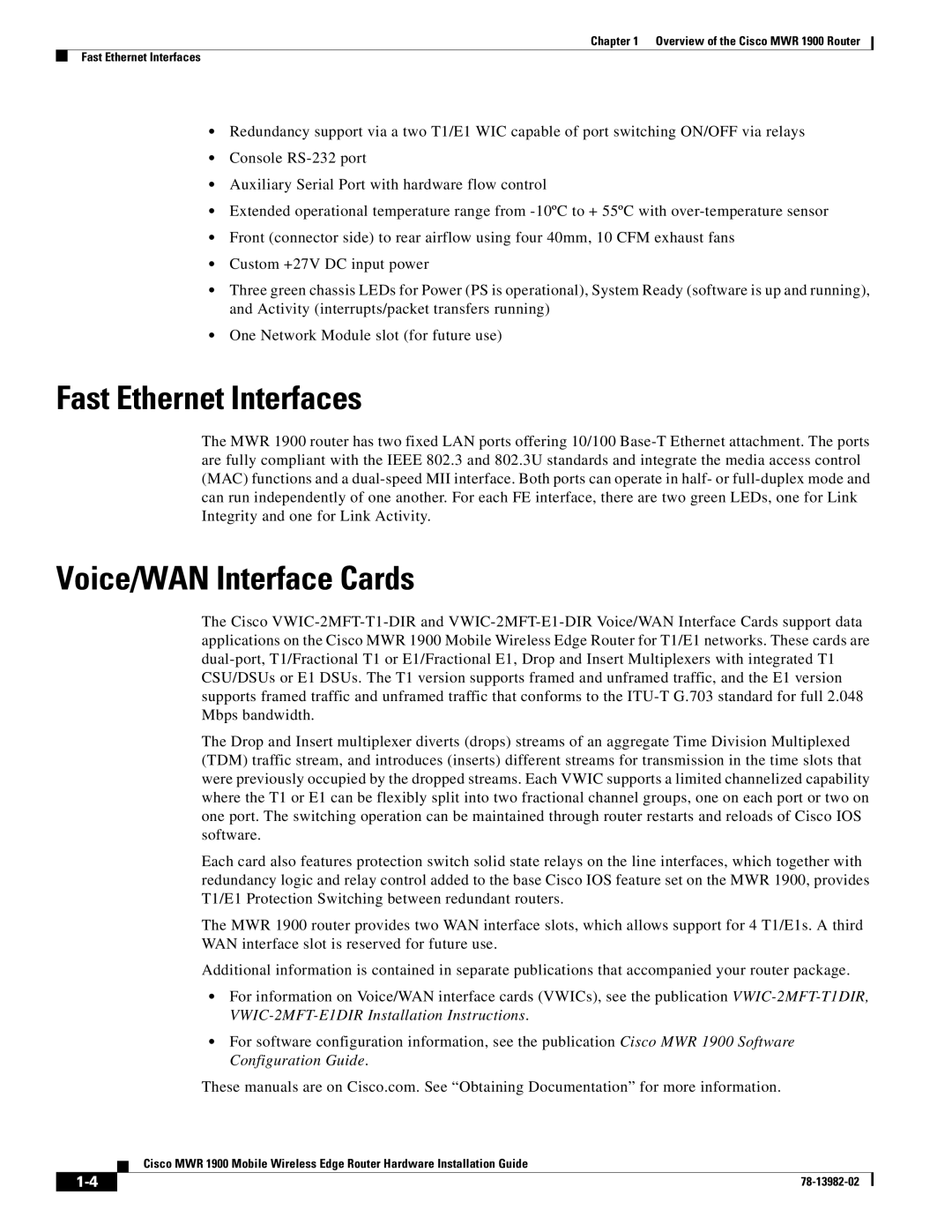
Chapter 1 Overview of the Cisco MWR 1900 Router
Fast Ethernet Interfaces
•Redundancy support via a two T1/E1 WIC capable of port switching ON/OFF via relays
•Console
•Auxiliary Serial Port with hardware flow control
•Extended operational temperature range from
•Front (connector side) to rear airflow using four 40mm, 10 CFM exhaust fans
•Custom +27V DC input power
•Three green chassis LEDs for Power (PS is operational), System Ready (software is up and running), and Activity (interrupts/packet transfers running)
•One Network Module slot (for future use)
Fast Ethernet Interfaces
The MWR 1900 router has two fixed LAN ports offering 10/100
Voice/WAN Interface Cards
The Cisco
The Drop and Insert multiplexer diverts (drops) streams of an aggregate Time Division Multiplexed (TDM) traffic stream, and introduces (inserts) different streams for transmission in the time slots that were previously occupied by the dropped streams. Each VWIC supports a limited channelized capability where the T1 or E1 can be flexibly split into two fractional channel groups, one on each port or two on one port. The switching operation can be maintained through router restarts and reloads of Cisco IOS software.
Each card also features protection switch solid state relays on the line interfaces, which together with redundancy logic and relay control added to the base Cisco IOS feature set on the MWR 1900, provides T1/E1 Protection Switching between redundant routers.
The MWR 1900 router provides two WAN interface slots, which allows support for 4 T1/E1s. A third WAN interface slot is reserved for future use.
Additional information is contained in separate publications that accompanied your router package.
•For information on Voice/WAN interface cards (VWICs), see the publication
•For software configuration information, see the publication Cisco MWR 1900 Software Configuration Guide.
These manuals are on Cisco.com. See “Obtaining Documentation” for more information.
Cisco MWR 1900 Mobile Wireless Edge Router Hardware Installation Guide
| ||
|
